Latest News
More News
-
 Young people encouraged to test for bowel cancer 19 November 2025 People born in the 90s are three times more likely to get bowel cancer than their parents. In 2025, colorectal cancer has become the deadliest cancer for Australians aged 25 to 44 years. Early-onset colorectal cancer is defined as a diagnosis before age 50. Sadly, Australia now has the world’s highest rates among in the under-50s, rising by up to 8% annually. Sam Mannix a healthy, beach loving active person in his 30s was shocked when he went to the doctor with abdominal pain and was diagnosed with stage 3 bowel cancer. Sam said it was very scary, especially being a young person but an early diagnosis potentially saved his life. "People that are showing any signs should not to be scared of going to their GP,” he said. “GP's see that stuff every day, that's what they're there for, to help out, so go get checked out." Symptoms to watch out for include diarrhoea or constip...
Young people encouraged to test for bowel cancer 19 November 2025 People born in the 90s are three times more likely to get bowel cancer than their parents. In 2025, colorectal cancer has become the deadliest cancer for Australians aged 25 to 44 years. Early-onset colorectal cancer is defined as a diagnosis before age 50. Sadly, Australia now has the world’s highest rates among in the under-50s, rising by up to 8% annually. Sam Mannix a healthy, beach loving active person in his 30s was shocked when he went to the doctor with abdominal pain and was diagnosed with stage 3 bowel cancer. Sam said it was very scary, especially being a young person but an early diagnosis potentially saved his life. "People that are showing any signs should not to be scared of going to their GP,” he said. “GP's see that stuff every day, that's what they're there for, to help out, so go get checked out." Symptoms to watch out for include diarrhoea or constip... -
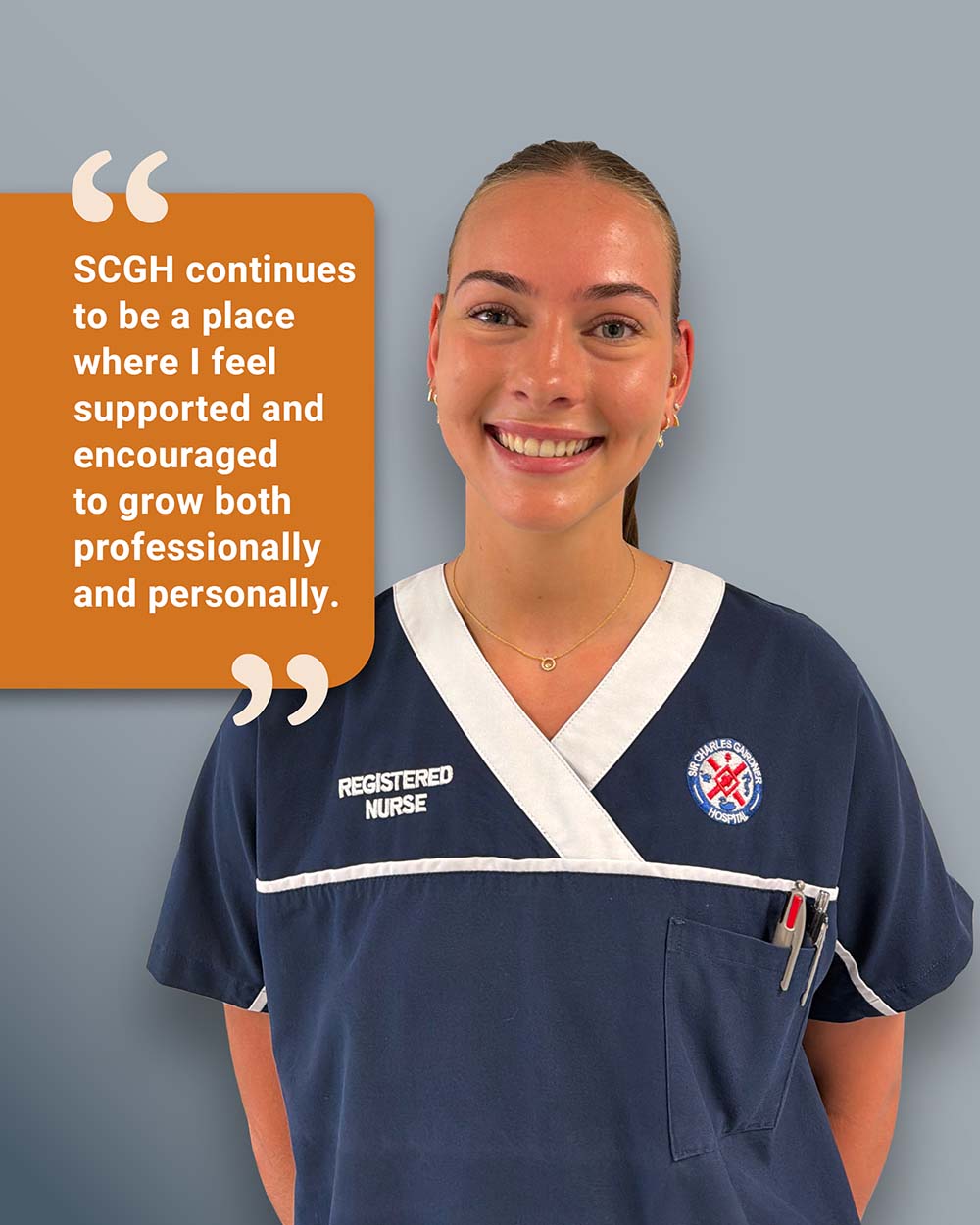 Abbie explains how career progression is a focus at SCGH 10 November 2025 With a range of nursing opportunities currently available at Sir Charles Gardiner (SCGH) and Osborne Park Hospitals (OPH), Abbie shares what she loves about working as a newly-qualified nurse for the organisation. After completing her final student placement at SCGH, Abbie was offered a position on the same ward as a newly qualified registered nurse at the beginning of 2024. "I have received continuous support from the team and really feel this was essential in my career progression," Abbie said. With guidance of the team, Abbie was able to complete further training such as Hospital Advanced Life Support within her first year of her qualification, which allowed her to obtain crucial skills. "These opportunities have laid the foundation for my continued professional development and progression towards senior nursing roles within the ward," she said. "Working at SCGH has not only provided ...
Abbie explains how career progression is a focus at SCGH 10 November 2025 With a range of nursing opportunities currently available at Sir Charles Gardiner (SCGH) and Osborne Park Hospitals (OPH), Abbie shares what she loves about working as a newly-qualified nurse for the organisation. After completing her final student placement at SCGH, Abbie was offered a position on the same ward as a newly qualified registered nurse at the beginning of 2024. "I have received continuous support from the team and really feel this was essential in my career progression," Abbie said. With guidance of the team, Abbie was able to complete further training such as Hospital Advanced Life Support within her first year of her qualification, which allowed her to obtain crucial skills. "These opportunities have laid the foundation for my continued professional development and progression towards senior nursing roles within the ward," she said. "Working at SCGH has not only provided ... -
Meet registered nurse Madi 25 September 2025 With a range of nursing opportunities currently available at Sir Charles Gardiner (SCGH) and Osborne Park Hospitals (OPH), Madi shared what drew her back to SCGH after time spent as a nurse in the country. After completing her study, Madi completed her graduate program on Ward G62 at SCGH. "I completed the program in 2020 during the COVID pandemic and felt very supported during quiet a challenging time," she said. "I decided to stay on G62 until the end of 2021, absolutely loving the fast paced environment and consolidating new skills." To broaden her nursing experience, Madi said she felt a need to travel and spent time as a nurse in country Western Australia. "I loved my time in the South West and Kimberly region but in 2023 came back to Perth where I picked up shifts around Perth," she said. "Time and time again I gravitated back to Charlies because I loved the nursing staff and speci...
-
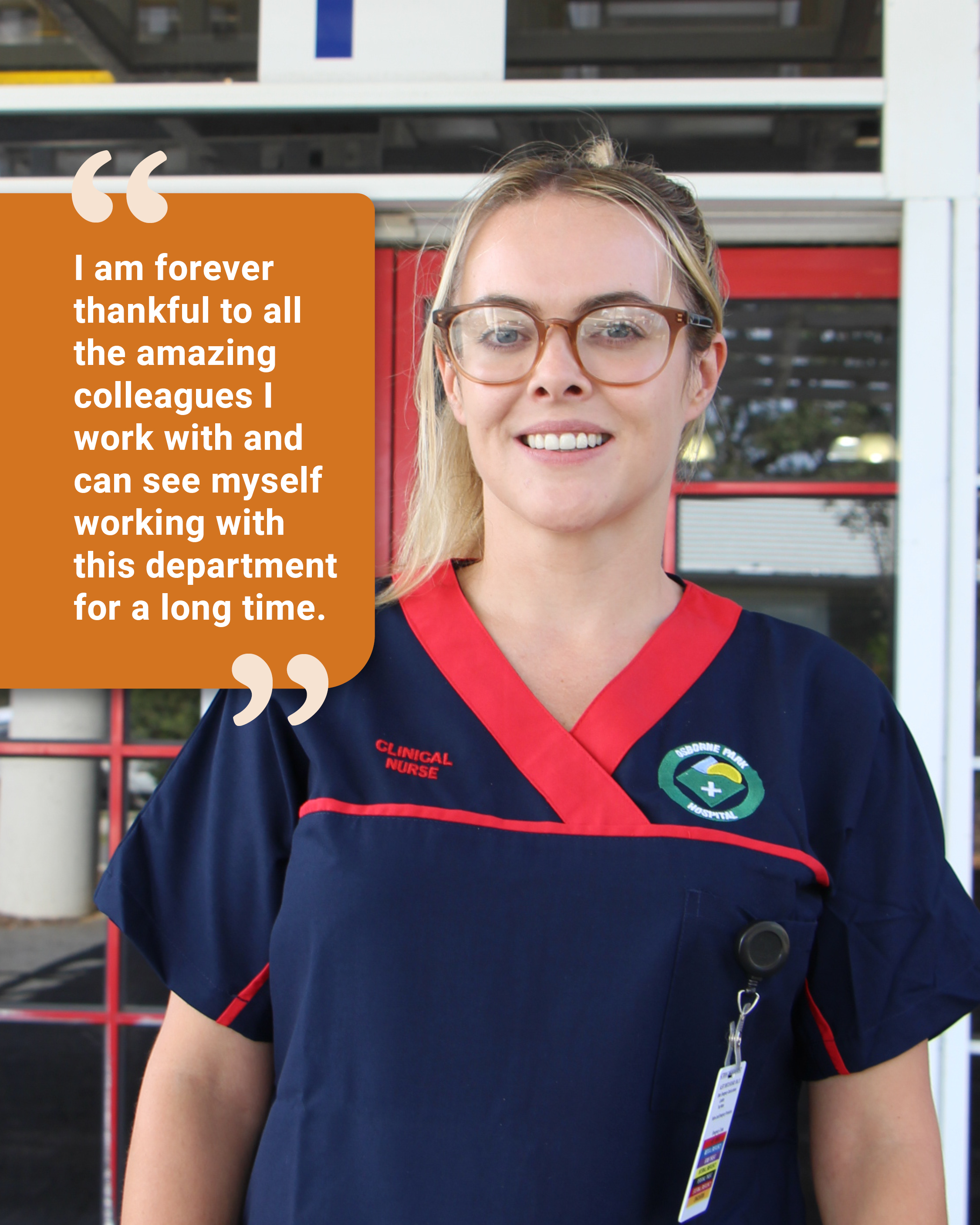 Meet registered nurse Natasha 01 August 2025 With a range of nursing opportunities currently available at Sir Charles Gardiner (SCGH) and Osborne Park Hospitals (OPH), clinical nurse Natasha gave us an insight into what she loved most about her position at OPH. Natasha returned to North Metropolitan Health Service and Osborne Park Hospital last year after five years away. "I started off as a graduate in 2017 with Sir Charles Gairdner Hospital but left to take up casual and fixed term nursing positions across residential aged care, mine sites, clinical trials and finally NurseWest," she said. NurseWest provide temporary nurses, midwives and assistants in nursing to support essential WA Health services. "I worked through NurseWest in the department for six months and was made to feel like part of the team even as an agency nurse straight away," she said. "So, when the permanent position got advertised, I decided I would apply. "I nev...
Meet registered nurse Natasha 01 August 2025 With a range of nursing opportunities currently available at Sir Charles Gardiner (SCGH) and Osborne Park Hospitals (OPH), clinical nurse Natasha gave us an insight into what she loved most about her position at OPH. Natasha returned to North Metropolitan Health Service and Osborne Park Hospital last year after five years away. "I started off as a graduate in 2017 with Sir Charles Gairdner Hospital but left to take up casual and fixed term nursing positions across residential aged care, mine sites, clinical trials and finally NurseWest," she said. NurseWest provide temporary nurses, midwives and assistants in nursing to support essential WA Health services. "I worked through NurseWest in the department for six months and was made to feel like part of the team even as an agency nurse straight away," she said. "So, when the permanent position got advertised, I decided I would apply. "I nev... -
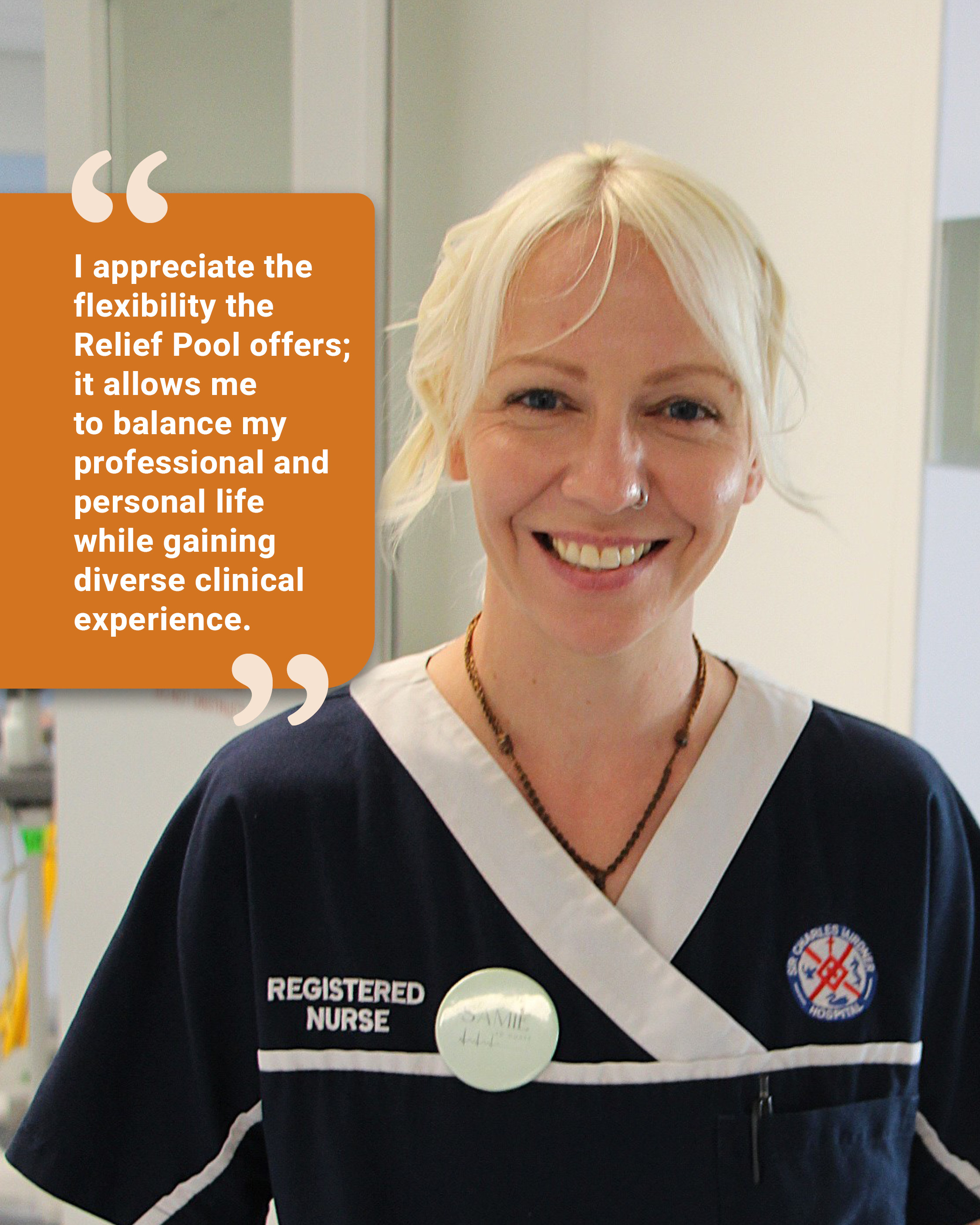 Meet registered nurse Samie 23 July 2025 We have a variety of nursing opportunities available at Sir Charles Gairdner and Osborne Park Hospitals so we asked nurse Samie to share the benefits of being part of the relief nursing pool. Samie joined the relief nursing pool to support her lifestyle and encouraged others to consider doing the same. "I appreciate the flexibility it offers; it allows me to balance my professional and personal life while gaining diverse clinical experience," she said. "The role also provides invaluable opportunities to enhance my skills across various specialties at SCGH. "I have gained valuable skills in the Emergency Department, Intensive Care Unit, Neurology, High Dependency Unit and surgical divisions, broadening my clinical knowledge and adaptability." Sammie said maintaining a healthy work-life balance was also important to her, which she was able to achieve via the pool. SCGH and OPH currently ha...
Meet registered nurse Samie 23 July 2025 We have a variety of nursing opportunities available at Sir Charles Gairdner and Osborne Park Hospitals so we asked nurse Samie to share the benefits of being part of the relief nursing pool. Samie joined the relief nursing pool to support her lifestyle and encouraged others to consider doing the same. "I appreciate the flexibility it offers; it allows me to balance my professional and personal life while gaining diverse clinical experience," she said. "The role also provides invaluable opportunities to enhance my skills across various specialties at SCGH. "I have gained valuable skills in the Emergency Department, Intensive Care Unit, Neurology, High Dependency Unit and surgical divisions, broadening my clinical knowledge and adaptability." Sammie said maintaining a healthy work-life balance was also important to her, which she was able to achieve via the pool. SCGH and OPH currently ha...
Last Updated:
12/04/2021


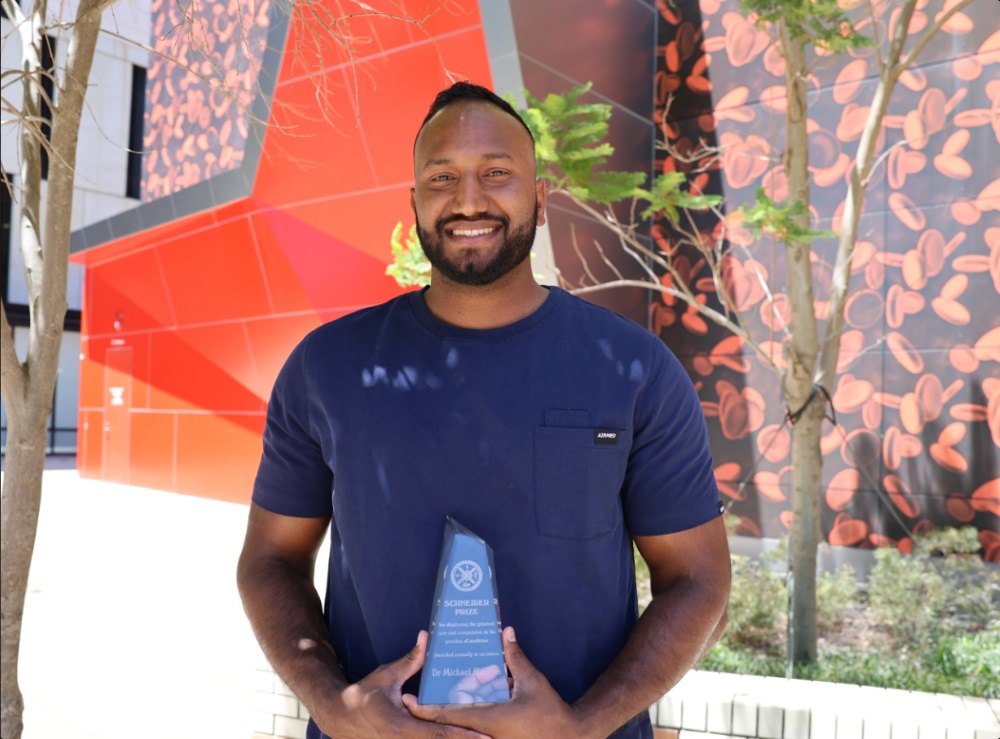
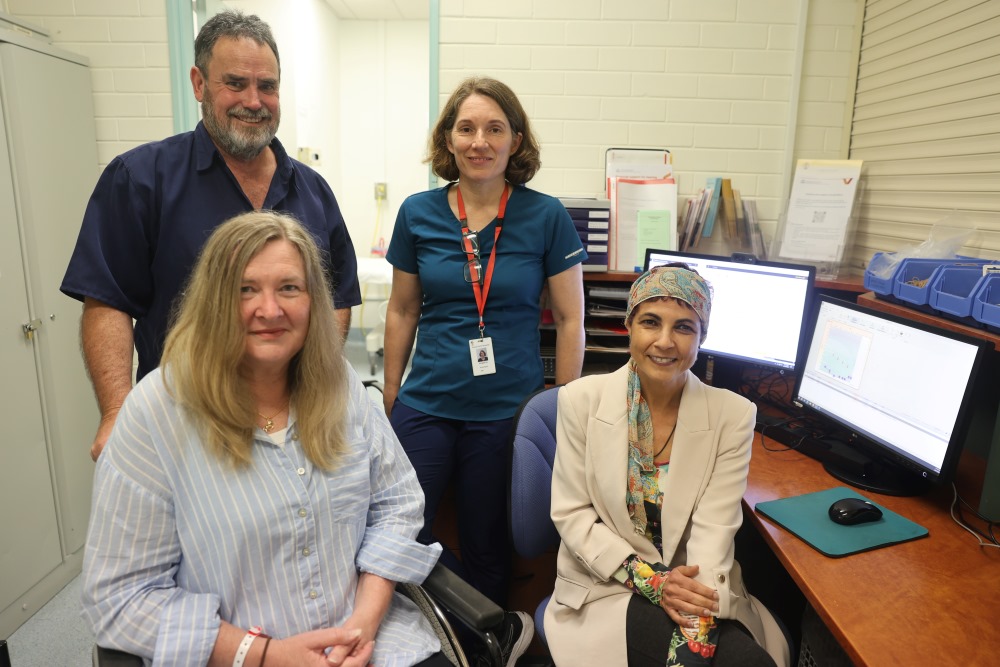
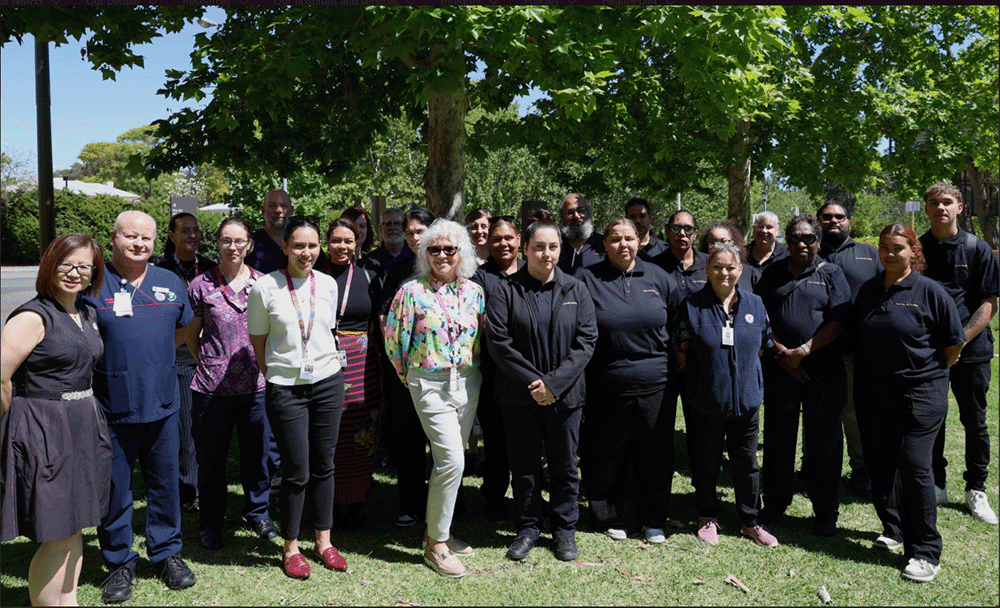

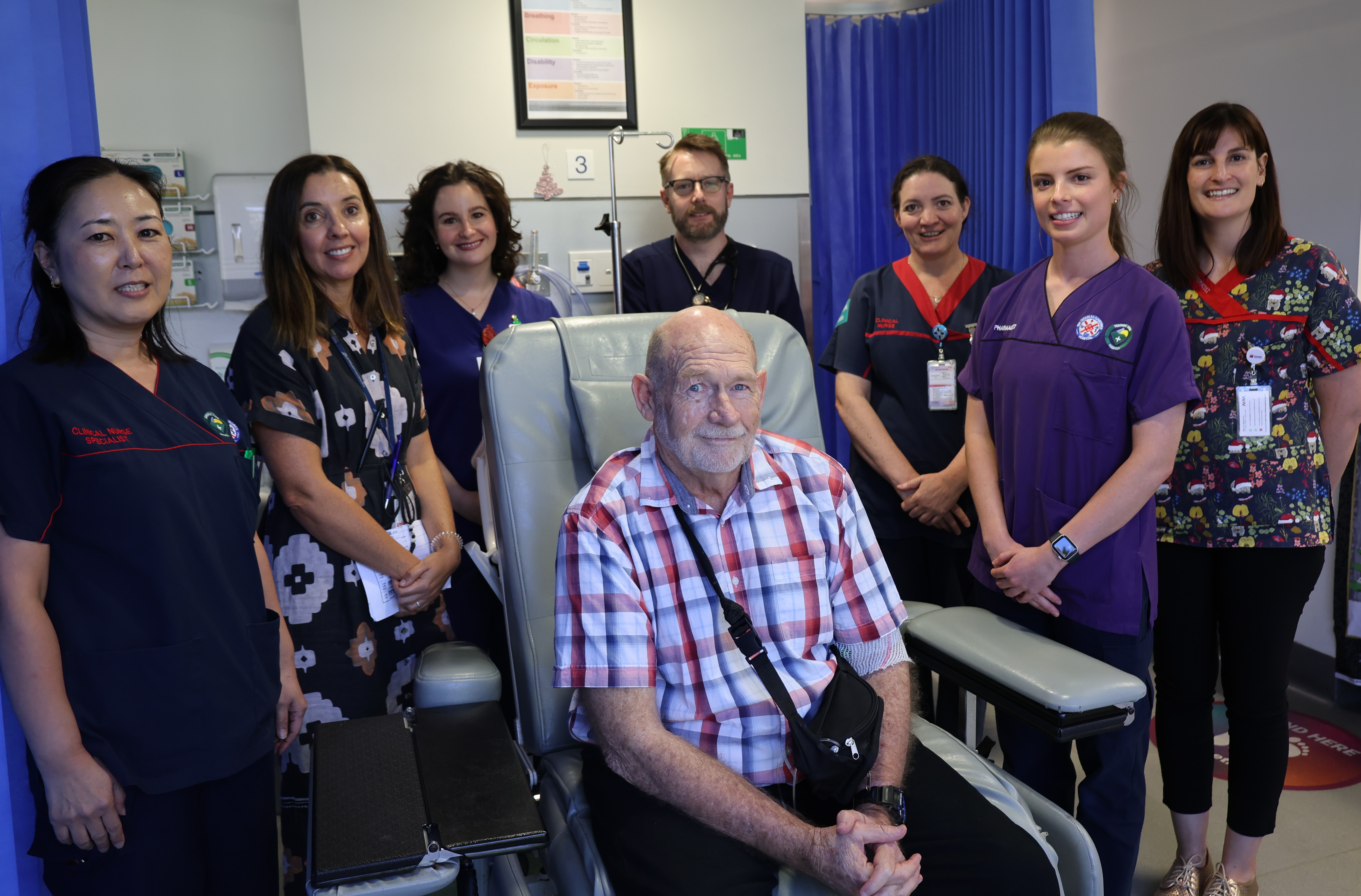
.JPG)